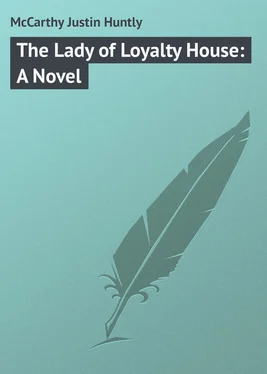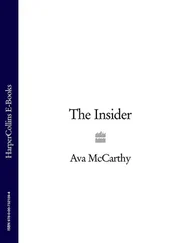Justin McCarthy - The Lady of Loyalty House - A Novel
Здесь есть возможность читать онлайн «Justin McCarthy - The Lady of Loyalty House - A Novel» — ознакомительный отрывок электронной книги совершенно бесплатно, а после прочтения отрывка купить полную версию. В некоторых случаях можно слушать аудио, скачать через торрент в формате fb2 и присутствует краткое содержание. Жанр: foreign_prose, Зарубежные любовные романы, на английском языке. Описание произведения, (предисловие) а так же отзывы посетителей доступны на портале библиотеки ЛибКат.
- Название:The Lady of Loyalty House: A Novel
- Автор:
- Жанр:
- Год:неизвестен
- ISBN:нет данных
- Рейтинг книги:3 / 5. Голосов: 1
-
Избранное:Добавить в избранное
- Отзывы:
-
Ваша оценка:
- 60
- 1
- 2
- 3
- 4
- 5
The Lady of Loyalty House: A Novel: краткое содержание, описание и аннотация
Предлагаем к чтению аннотацию, описание, краткое содержание или предисловие (зависит от того, что написал сам автор книги «The Lady of Loyalty House: A Novel»). Если вы не нашли необходимую информацию о книге — напишите в комментариях, мы постараемся отыскать её.
The Lady of Loyalty House: A Novel — читать онлайн ознакомительный отрывок
Ниже представлен текст книги, разбитый по страницам. Система сохранения места последней прочитанной страницы, позволяет с удобством читать онлайн бесплатно книгу «The Lady of Loyalty House: A Novel», без необходимости каждый раз заново искать на чём Вы остановились. Поставьте закладку, и сможете в любой момент перейти на страницу, на которой закончили чтение.
Интервал:
Закладка:
The man of Harby slackened his speed for a second, and there came an ugly look of quarrel into his face which made it plain as a map for Halfman that there was immediate chance of a brawl and a tussle. He would have relished it well enough, knowing pretty shrewdly how it would end, but he contented himself for the moment, having other business in hand, with cheerful comment.
“Friend,” he said, “if we are both King’s men we have no leisure for quarrel, however much our fingers may itch. What is your name, valiant?”
The serving-man scowled at him for a moment; then his frown faded as he faced the smile and the bright, wild eyes of Halfman.
“My name is Thoroughgood,” he answered, and he added, civilly enough, as if conscious of some air of gentility in his companion, “John Thoroughgood, at your service.”
“A right good name for a right good fellow, if I know anything of men,” Halfman approved. “And I take it that you serve a right good lady.”
“My lady is my lady,” Thoroughgood replied, simply. “None like her as ever I heard tell of.”
Halfman endeavored by dexterous questionings to get some further information than this of the Lady of Harby from her sturdy servant, but Thoroughgood’s blunt brevity baffled him, and he soon reconciled himself to tramp in silence by his guide. So long as he remembered anything he remembered that passage through the park, the sweet smell of the wet grass, the waning splendors, russet and umber, of October leaves, the milky blueness of the autumn sky. This was, indeed, England, the long, half-forgotten, yet ever faintly remembered, in places of gold and bloodshed and furious suns, the place of peace of which the fortune-seeker sometimes dreamed and to which the fortune-maker chose to turn. The place of peace, where every man was arming, where citizens were handling steel with unfamiliar fingers, and where a rover like himself could not hope to let his sword lie idle. It was as he thought these thoughts that a turn of the road brought him face to face with Harby Hall, and all the episodes of a busy, bloody life seemed to dwindle into insignificance as he crossed the moat and passed with John Thoroughgood through the guarded portals and found himself once again in the shelter of the great hall.
The great hall at Harby was justly celebrated in Oxfordshire and in the neighboring counties as one of the loveliest examples of the rich domestic architecture which adorned the age of Elizabeth. “That prodigal bravery in building,” which Camden commends, made no fairer display than at Harby which had been designed by the great architect Thorp. Of a Florentine favor externally, it was internally a magnificent illustration of what Elizabethan decorators could do, and the great hall gave the note to which the whole scheme was keyed. Its wonderful mullioned windows looked out across the moat on the terrace, and beyond the terrace on the park. Its walls of panelled oak were splendid witnesses to the skill of great craftsmen. Its carved roof was a marvel of art that had learned much in Italy and had made it English with the hand of genius. Over the great fireplace two armored figures guarded rigidly the glowing shield of the founder of the house. Heroes of the house, heroines of the house, stared or smiled from their canvases on the mortal shadows that flitted through the great place till it should be their turn to swell the company of the elect in frames of gold. At one end of the hall sprang the fair staircase that was itself one of the greatest glories of Harby, with its wonderful balustrade, on which, landing by landing, stood the glorious carved figures of the famous angels of Harby.
III
MY LORD THE LADY
Between the topmost pair of carven angels a woman stood for a second looking down upon the man below. She had come quite suddenly from a door in the great gallery, and she paused for a moment on the topmost stair to survey the stranger who had summoned her. The stranger for his part stared up at the woman in an honest and immediate rapture. He was not unused to comely women, seen afar or seen at close quarters, but he felt very sure now that he had never seen a fair woman before. He prided himself on a most unreverential spirit, but his instant, most unfamiliar emotion was one of reverence. His fantastic wit idealized wildly enough. “An angel among angels,” he exulted. “Ecce Rosa Mundi,” his rusty scholarship trumpeted. His brain was a tumult of passionate phrases from passionate play-books, “Oh, thou art fairer than the evening air,” overriding them all like a fairy swan upon a fairy sea. There never was such a woman since the world began; there never could be such a woman again till the world should end. And while his mind whirled with his own ecstasies and the ecstasies of dead players, the Lady Brilliana came slowly down the great stairs.
If the light of her on his eyes dazzled him, if the riot in his mind overprized her excellence, a saner man could scarce have failed to be delighted with the girl’s beauty, a wiser to have denied her visible promises of merit. If better-balanced minds than the mind of Hercules Halfman, striving to conjure up the image of their dreams, had looked upon the face, upon the form, of Brilliana Harby, they might well have been willing to let imagination rest and be contented with the living flesh. Twenty sweet years of healthy country life had set their seal of grace and color upon the child of the union of two noble, sturdy stocks; all that was best of a brave dead man and a fair dead woman was mirrored in the pride of her face, the candor of her eyes, the courage of her mouth. Lost father and lost mother had made a strange pair; all their excellences were summed and multiplied in their bright child’s being. A dozen gallant gentlemen of Oxford or Warwickshire would have given their fortunes for the smallest scissors-clipping of one sable curl, would have perilled their lives for one kind smile of those blue eyes, would have bartered their scanty chances of salvation for the first kiss of her fresh lips.
While she descended the stairs Halfman never took his eyes off the lady. He found himself wishing he were a painter, that he might perpetuate her graces through a few favored generations who might behold and adore her dimly as he beheld and adored her clearly, in her riding-dress of Lincoln green, whose voluminous superfluity she held gathered to her girdle as she moved. No painter could have scanned her more closely, noted more minutely the buckle of brilliants that captured the plume in her hat, the lace about her throat, the curious work upon her leather gauntlets, the firm foot in the small, square shoe, the riding-whip with its pommel of gold which she carried so commandingly. Lovely shadows trooped into his mind, names that had been naught but names to him till now – Rosalind, Camiola, Bianca. They had passed before him as so many smooth-faced youths, carrying awkwardly and awry their woman’s wear, and lamentably uninspiring. Now he saw all these divine ladies take life incarnate in this divine lady, and he marvelled which of the loveliest of the rarely named company could have shone on her poet’s eyes so dazzlingly as this creature.
He stared in silence till she had reached the foot of the staircase, still stared silent as she advanced towards him. There was nothing disrespectful in his direct glance, but the steadfastness and the silence stirred her challenge.
“Sir,” she said, “when you asked to see me it was not, I hope, in the thought to stare me out of countenance.”
Halfman made her a sweeping salutation and found his voice with an effort, but his words did not interpret the admiration of his eyes.
“I asked to see you,” he answered, respectfully, “because I ride with tidings that may touch you. I am newly from Cambridge.”
Читать дальшеИнтервал:
Закладка:
Похожие книги на «The Lady of Loyalty House: A Novel»
Представляем Вашему вниманию похожие книги на «The Lady of Loyalty House: A Novel» списком для выбора. Мы отобрали схожую по названию и смыслу литературу в надежде предоставить читателям больше вариантов отыскать новые, интересные, ещё непрочитанные произведения.
Обсуждение, отзывы о книге «The Lady of Loyalty House: A Novel» и просто собственные мнения читателей. Оставьте ваши комментарии, напишите, что Вы думаете о произведении, его смысле или главных героях. Укажите что конкретно понравилось, а что нет, и почему Вы так считаете.












